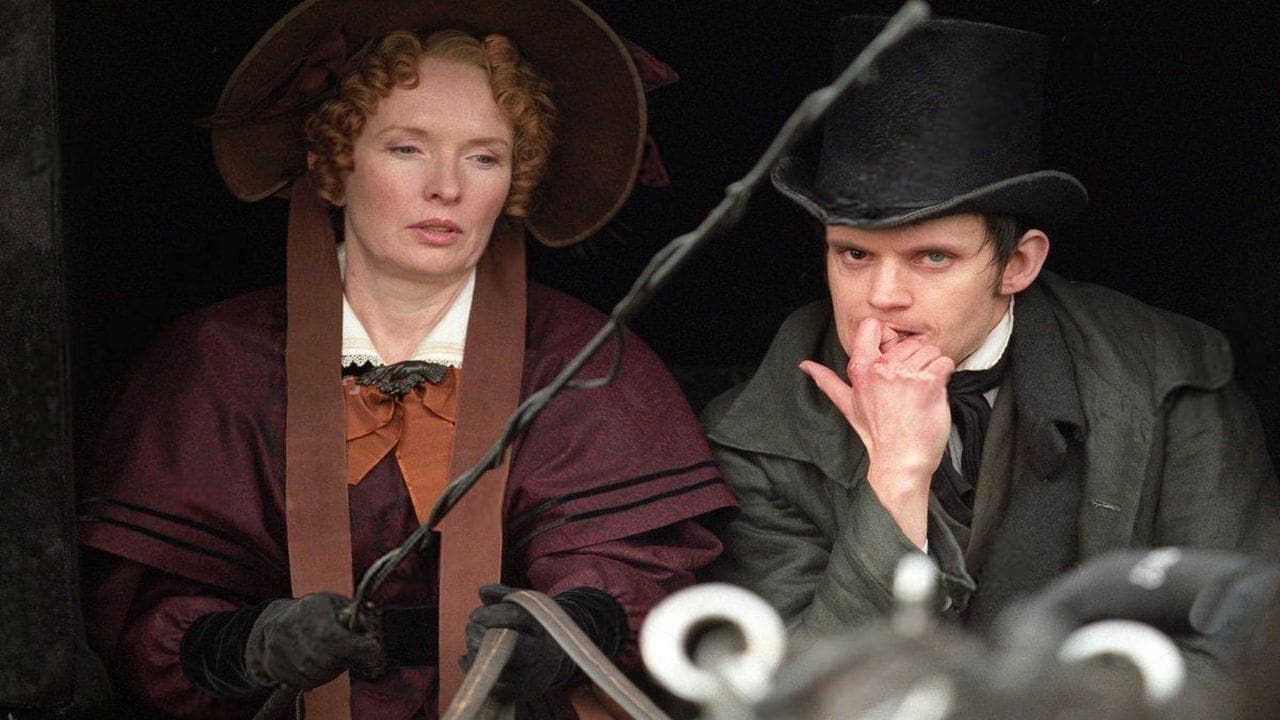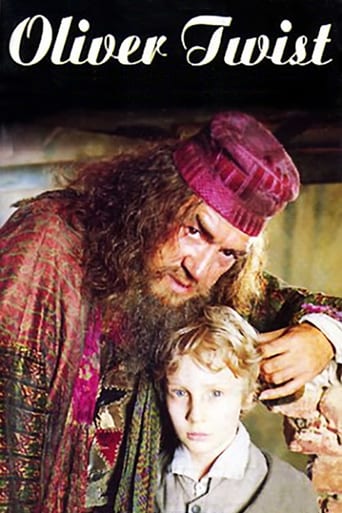

Some have taken Alan Beasdale to task for rewriting some aspects of the original Dickens story, but I think it was all for the best. It may not match the original story, but taken completely on its own it is nonetheless very compelling and captures the essence of the original well enough while adding some nice new elements.This is a top notch production in every respect... writing, direction, acting, music, sets, costumes, etc. Robert Lindsay as Fagin is astounding among an absolutely terrific cast, with Sam Smith playing just the right light note as Oliver and Marc Warren a dutifully creepy Monks.I've seen the whole thing twice now and enjoyed it even more the second time, with the six hours of it seeming to fly by. 10 out of 10
... View MoreThe Oliver re-make cycle can stop now that we have this amazing version. I saw it when it first played on Itv back in 1999. After seeing the downfall that was Oliver Twist (2005) I made it my business to find this version so i was able to see an amazing, moving and thrilling story.This four part series is directed beautifully and magically enough it includes something that the Roman Polanski version forgot Emotion! The story of Oliver Twist runs on emotion and great characters! Through-out this version the audience are invited to follow and believe the story about the poor boy that asked for more. With great direction and performances (Julie Walters, Robert Lindsay, David Ross, Andy Serkis and Sam Smith as Oliver) along side stunning lighting and costume this mini series will provide high entertainment. If you were unimpressed by the Polanski version I highly recommend this one!
... View MoreIn some ways, it's good to see some of the subplots that have to be snipped for time in shorter renditions. Unfortunately, what remains is twisted Dickens. Dickens wrote for serial, and sometimes wrote himself into corners. He didn't plan Oliver Twist out from the start, so characters like "Monks" wormed into later installments to help iron out a conclusion. OLIVER TWIST the book is therefore not to be read or judged like a modern novel, but rather a sprawling (though not so sprawling as the nearly contemporary, episodic, and wonderful PICKWICK PAPERS) epic view of Oliver's world, where many extraneous activities take place. Unfortunately, the writers of this "Oliver Twist" have manipulated Dickens to try to tie together all the extraneous material. They've also done unforgivable things to the characters. The way the "Artful Dodger" picked Mr. Brownlow's pockets and the aftermath was shocking. Fagin, a wonderful character in all his many incarnations, has been transformed from a man who teaches boys to pick pockets to a magician of sorts, so he comes off more like a thwarted music hall prestidigitator than a corrupter of morals. And the end of Bill Sykes, as written here, is perverted. Some margin of liberty should be granted movie adaptations. Because of time constraints, and the fact that Dickens' wonderful language cannot be easily transferred to the screen. But this version takes too many liberties and warps too many characters. It's a shame, because it has a nice look to it, and Robert Lindsay, a fine actor, might've been a great Fagin. The worst part of the movie is the backstory. Dickens shoves all of the tale of Oliver's parentage into the final pages of his tale, and much that was inexplicable is there explained. These people have expanded upon that to make a full two-hour stand-alone episode! This not only gives a fraudulent view of how OLIVER TWIST the story is constructed, it undercuts what mystery the book possesses. If you want a solid (if truncated) version of the book, David Lean's 1948 adaptation is still powerful; for an even easier to digest version, the Oscar-winning musical has a true Dickensian look and the characters are all true (Ron Moody, Oliver Reed, and Harry Secombe being standouts) and several tuneful songs. If you want a version where Fagin comes out a figure of persecution, try the one where Fagin is portrayed by George C. Scott. If you're a Dickens purist, give this version a miss; if you never intend to read Dickens, or have tried and don't like Dickens, you might like this version after all.
... View MoreI have always loved this story - the hopeful theme, the excellent characters and Dickens' realistic and meticulous descriptions. So when this was aired, all my friends told me to watch it, because it was really good. So I did. And I enjoyed it. It didn't stick to the book too often, and Mr Bumble and Fagin weren't that Dickensian, but Monks was brilliant and there were some ingenious moments of direction. Then I watched the final episode, and was so disappointed. Someone else said they were almost in tears by the end. I was too - it was so poor. It was as though the scriptwriter skimmed through the book and made the rest up. It was rushed, especially during Sikes' escape, and as a result lacked any feeling to it. The only feeling was in the one place it shouldn't have been - Sikes. Dickens wrote him as an unfeeling, brutal character. If at any point he loved Nancy, he would never have said so, least of all to Fagin. That one line, "I loved her, Fagin" ruined everything the film had going for it. Unbeliveable. Which describes Fagin. Pathetic. Alec Guinness was so much better - he was realistic. As was Frances L. Sullivan. I don't think that guy who played Mr Bumble realised that the character was a poke of fun at the parish beadles. As well as the dodger... if Dickens wrote that he was around Oliver's age, do you think the dodger was MEANT to be around Oliver's age? On the other hand, as well as Monks' superb acting, Rose Maylie (sorry, Fleming) was pretty good, as was Nancy, except she didn't show any love for Bill. They must have got the two mixed up. I much prefer Lean's 1948 version. It may be abriged, but it's better than the expanded attempt at Dickens.
... View More